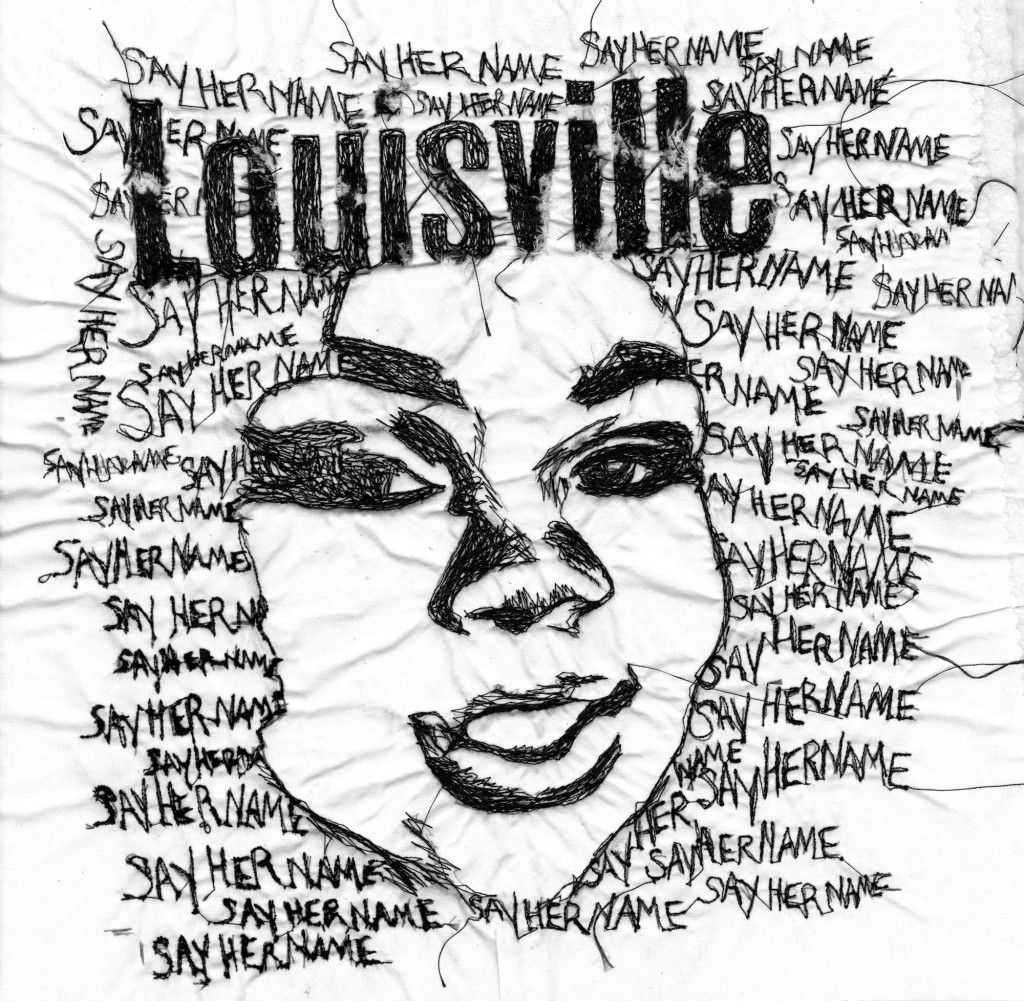By Aldrena Corder
I created Unraveled. Ms. Taylor’s Portrait using a quilting technique inspired by Lola Jenkins, a well-respected master quilter. Jenkins uses vibrant colors and patterns in her work to create portraits that depict experiences in the lives of the Black community. For this piece, I chose to stitch black thread onto white fabric. With the intentional absence of color, the viewer is confronted only by Breonna Taylor’s smile, contrasted with the vicious reality of her death. Using black and white, I wanted to convey a sense of timelessness while acknowledging the persistent struggle for equality for Black Americans — especially Black women.
Sewing is an intimate and spiritual act for me, a way for me to connect to the rich heritage of making in the Black community. Historically, quilts have played significant roles socially and economically for Black women. Quilting bees afforded a way for Black women and girls to gather and share stories, lessons and warnings about life. Additionally, quilting bees provided space for voices to be heard and healing through shared experiences.
Similarly, stitching Unraveled. Ms. Taylor’s Portrait by hand allowed a way to share in the pain and agony of her death. Creating this way brought a certain level of intimacy that, for me, I could not achieve digitally. Writing by hand, then stitching, “Say Her Name” repeatedly was a way for to me speak for Ms. Taylor and the other Black women and girls whose voices have been silenced and overshadowed and, ultimately, forgotten.
Ripping parts of the image and leaving layers exposed are a nod to the impermanence and delicateness of life. The work for justice is not easy; it’s messy and raw. This is a community coming apart. Louisville is Breonna Taylor, and the city itself is struggling to come to terms with racial injustice, along with the entire country.



